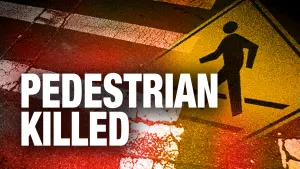More Stories
News 12's Macy Egeland was joined by Michael Lawlor, an associate professor of criminal justice at the University of New Haven, and Dr. Tochi Iroku-Malize, Northwell Health's chair of family medicine, to discuss recent changes in gun laws.
The House is expected to pass a bipartisan gun violence bill that includes school security upgrades and strengthened background checks. It also would close the "boyfriend loophole," which makes sure dating partners can't have guns if they have a history of violence within a relationship. This comes after the Supreme Court ruled Thursday that New York's requirement for people to provide a need for carrying a gun to get a license to have one in public violates the Second Amendment.
Iroku-Malize serves on Northwell's Gun Violence Prevention Committee, which was created in 2020. She says gun safety is not about taking away guns, but about the education of health care professionals and the community.
Iroku-Malize says illegal firearms are a major contributor to gun violence. She says the key to combating this is to make sure the process to get legal guns is appropriate.
Gov. Kathy Hochul is opposed to the overturning of New York's concealed carry gun restrictions and has said she plans to create further laws to restrict where people could carry handguns.
Lawlor says this restriction is already implemented in some areas, such as airports and court rooms. He also says in the case of the recent school shooting in Texas, there was armed security on the scene, but it didn't seem to prevent the shooting from taking place.
Lawlor says the tri-state area currently has the lowest firearm death rates than anywhere else in the country while states with the lowest amount of gun restrictions have the highest death rates.
More from News 12
2:13

LIRR deals with delays, cancellations due to ongoing storm-related issues
0:34

Gov. Hochul urges families to take advantage of newly expanded child tax credit
0:46

Many Americans could see higher tax refunds this year
0:33

New fee targets airline passengers lacking Real ID or passport
0:43

Plow driver helps rescue cat from storm drain in Deer Park
0:15
